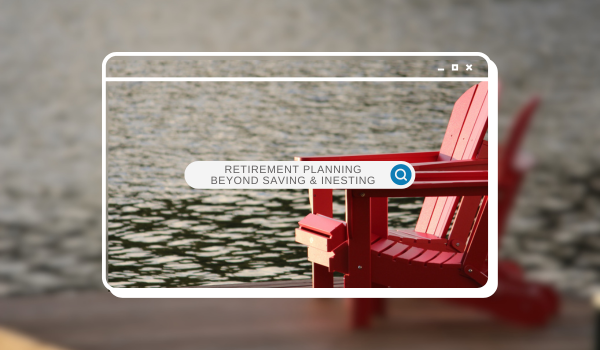What Happens if I Don’t Name a Beneficiary? Who Gets My 401(k)?
April 7, 2021|Parker Elmore

KEY POINTS
- Neglecting to name a beneficiary means your assets may be designated to your estate and become subject to probate.
- Plan ahead to review your beneficiary information once per year and when major life changes happen.
- Avoid subjecting your loved ones to the probate process by designating both primary and alternative beneficiaries.

You may be naturally hesitant to think of your own demise and the issues associated with it. That’s okay, so are most of us. But what happens if you don’t name a beneficiary on your retirement accounts? Any remaining benefits may go to your estate. It’s important to review your beneficiaries regularly to avoid any complications. This includes IRAs, 401(k)s, defined benefit plans, and any life insurance plans you may have.
Here’s a quick tip: much like you check the smoke detector batteries when you change the clocks for daylight savings time, you should set an annual reminder to check your beneficiary designations as well.
So, What Happens if I Don’t Keep my Beneficiary Up-to-Date or Fail to Name One?
Any remaining benefits will be paid to the last beneficiary on file. If none exists, the terms of the plan document will set the precedence. While each plan document varies, the general order of default beneficiaries is your spouse, your children, and then your estate.
While you may think, “That’s fine. It will still go to my spouse.” Or “I don’t mind if it goes to my estate because whoever inherits my estate will receive it.” It’s not quite that simple. Your family members will need to go through probate court and deal with the legal ramifications (and administrative headaches) that go along with that.
When someone passes away, a majority of their assets are frozen until a will is located and then validated in court. Any debts still owed are then paid before their assets are released. This is known as the probate process. If you have a living beneficiary listed on your retirement plan, the assets in those accounts will not be subject to probate.
Another misconception is that if you don’t name a beneficiary on your retirement plan, it will default to who is listed in your will. In the case of retirement funds, not naming a beneficiary will leave the determination up to the plan document or default terms of the account.
What if I get Divorced and/or Remarry?
If you have named your now ex-spouse as your beneficiary, that beneficiary designation remains valid until you affirmatively change it. A divorce decree that splits your assets does NOT impact any beneficiary designation per the US Supreme Court decision in 2009. If you wish to make sure that your new spouse is your beneficiary, you must update that with the plan.
The Bottom Line
Death is an inevitable part of life. Planning ahead now can help secure your family’s future when that time comes and give you some much-needed peace of mind. Once you designate your beneficiaries, set a reminder annually to look over your beneficiary information. Also, remember to make changes as needed that may come from a major life change such as marriage, divorce, the birth of a child, or the passing of a spouse.
More on Retirement:
- SECURE Act 2.0 and What You Need to Know
- 5 Ways to Protect Your Retirement Account from Fraud & Identity Theft
- Required Minimum Distributions are Back. Tell a Friend.
Odyssey Advisors seeks to stay up-to-date with current & future plan design options as well as relevant IRS, DOL, and ERISA regulations to keep our clients and partners informed. If you have questions, please reach out to an Odyssey consultant for more information.

About The Author As President and CEO of Odyssey Advisors, Parker Elmore is dedicated to quality service, expertise, and efficiency. With over 35 years of industry experience, Parker and the Odyssey team develop and implement solutions to the complex financial issues faced by...
More Insights From This author

October 2, 2024
Parker Elmore

August 28, 2023
Parker Elmore







